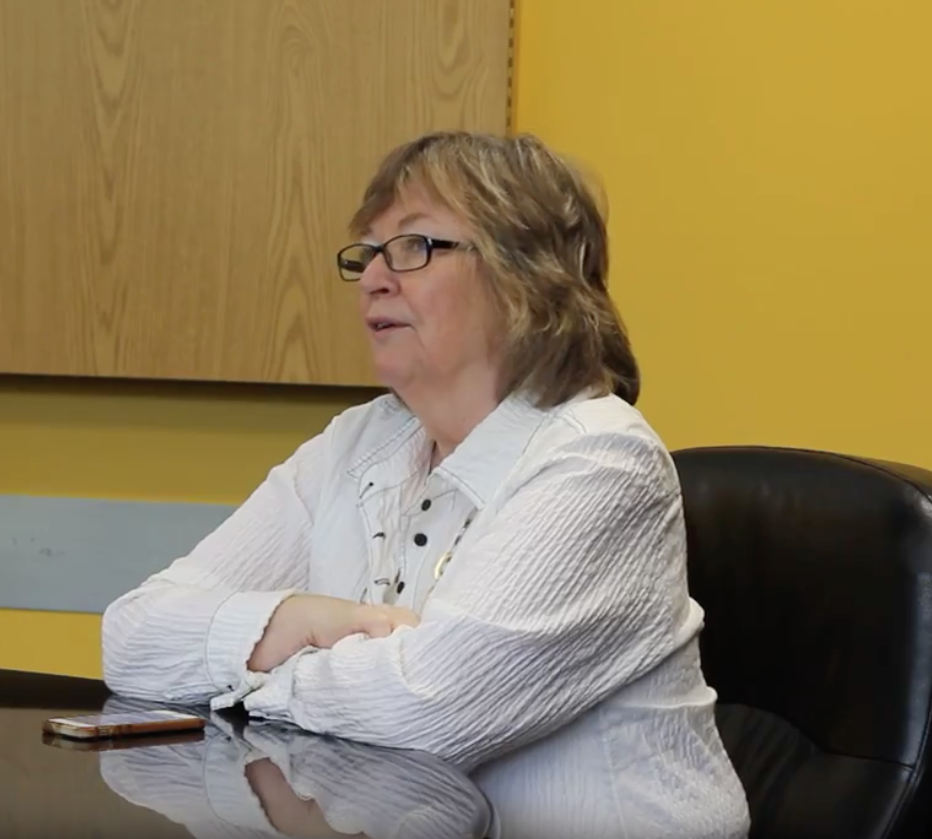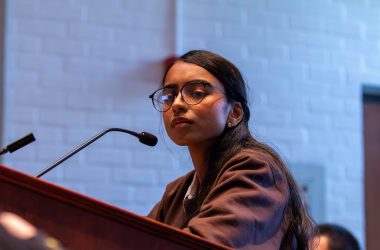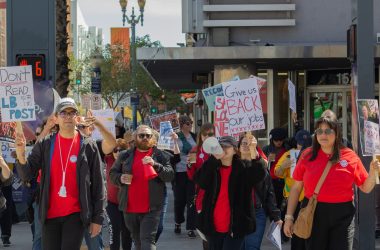An $11 million Cal State Long Beach budget deficit may result in an increased availability of online classes, a delay in new renovation projects and a “strategic chilling” of the number of tenure-track hires, according to President Jane Close Conoley.
The university is developing ways to mitigate the shortage for the 2018-2019 school year.
Conoley sat down with the Daily 49er Thursday, where she explained that the university had learned the severity of the budget shortfall last week from Provost Brian Jersky and Chief Financial Officer Scott Apel.
Originally, the university predicted a worst-case budget shortage of $7 to $8 million for the 2018-2019 school year if Gov. Jerry Brown allocated the $92.1 million to the Cal State University system after the May Revision.
According to Conoley, the current deficit is a combined result of Brown’s proposed funds to the Cal State system and a lower amount of revenue from tuition costs over the 2017-2018 school year.
While no definite plan for handling the debt is in place, Conoley said the university is in the process of finding solutions to bridge the gap.
Due to an excess of graduating students during the 2016-2017 school year, the school is missing $5 million in tuition-based revenue. While the number of graduating students was high, the university admitted its typical number of 8,200 students, leaving a deficiency in funds.
“We can fix some of that,” Conoley said. “But we can’t fix it overnight…What we didn’t anticipate was 400 extra students graduating.”
Conoley attributes this jump in graduation rates to the statewide Graduation Initiative, which intends to increase four-year graduation rates among Cal State and University of California students. While the university predicted that rates would rise from 16 percent to 19 or 20 percent, Cal State Long Beach saw a jump from 16 percent to 25 percent in the 2016-2017 school year.
“It’s kind of good news, students were finding classes they needed to take to graduate,” Conoley said. “So they didn’t have to stay an extra semester if they didn’t want to.”
As a result, the university intends to alter its targeted number of enrolled transfer and freshman students from 8,200 to 9,000 accepted applicants.
Additionally, the university intends to slow down its tenure-track hiring for departments with lower enrollment in what Conoley called a strategic hiring “chill.” Conoley said this plan was strategic because all departments will not be equally impacted — for example, departments with a low professor-to-student ratio will still be considered for hires, as will departments that are considered promising studies in their fields by the university.
“About 70-80 percent of our budget is in salaries, so when you want to do something about deficits you immediately turn to salaries,” Conoley said. “Because that’s where the money is residing.”
Although Conoley did not elaborate on which departments would be affected by the hiring slow-down, she said new tenure-track hires for the 2018-2019 school year would not be affected.
Additionally, the university is planning on expanding its online courses to increase funds, which Conoley said, is a relatively untapped source of revenue. While the campus has a limited number of full-time spots for students trying to enroll, students engaging in online certificate courses are not included in the enrollment count.
“My current best thinking is that through [the College of Continuing and Professional Education] we could increase our online offerings,” Conoley said. “I think that would be a way we can protect our state-side students from fees.”
The last component of the university’s developing plan is to further delay new on-campus renovation projects, though in-progress construction and renovation will not be halted. According to Conoley, the general CSU system is awarded $15 million in “one-time money” for deferred maintenance. However, she explained that the university could really use somewhere in the ballpark of “$100 million” to make all of the necessary renovations on campus.
“Some of those buildings should be levelled, and we should build multiple story buildings [in their place]. We only have this much land, so we shouldn’t be building one-story things…” Conoley said. “[But] how much money do you put into a building that isn’t really worth it anymore?”
The changes for the upcoming spring commencement, as reported by the Daily 49er, will also be helping the university with mitigating the budget gap. Conoley said the change in both venue and schedule of ceremonies for the 2017-2018 commencement is saving the university approximately $60,000 in overall costs, while $40,000-$50,000 of that new revenue being provided by reduced shuttle services.
The university would have saved $13,000 by cutting live music from the commencement ceremonies, but according to Conoley, backlash from the graduating students encouraged administration to seek other methods of trimming costs.
“Certainly the live music turned out to be such an important thing, that we said, ‘Well, then it’s not worth it,’” Conoley said. “It’s not worth making people miserable.”




